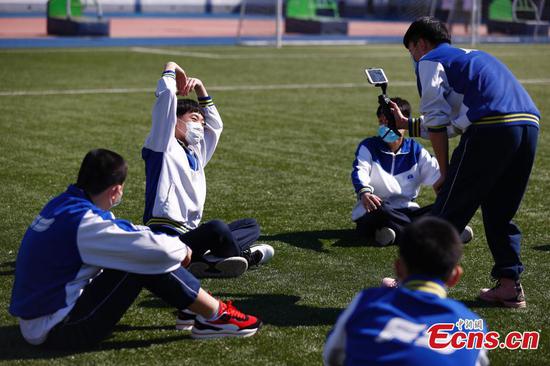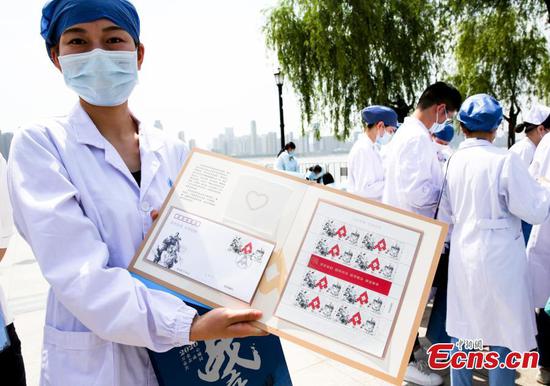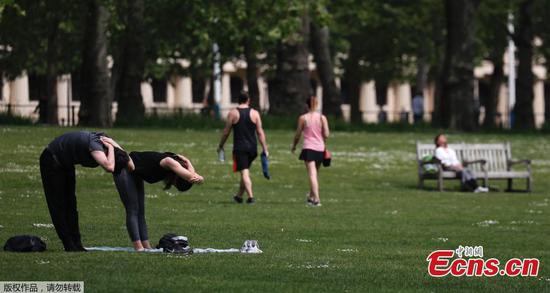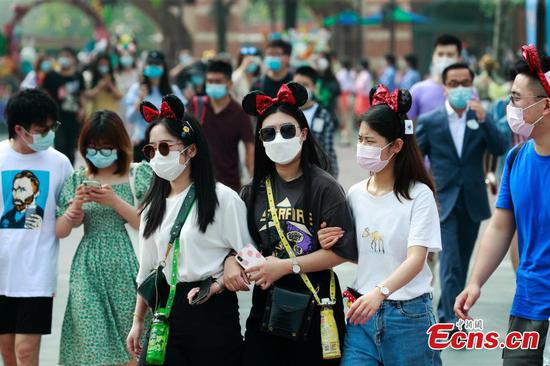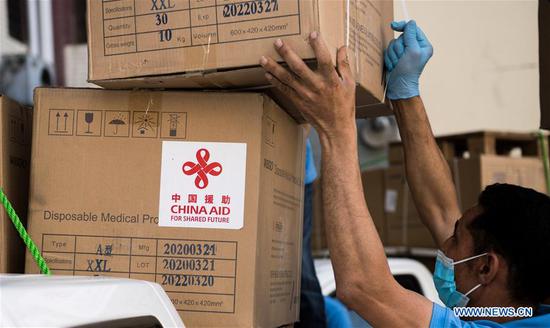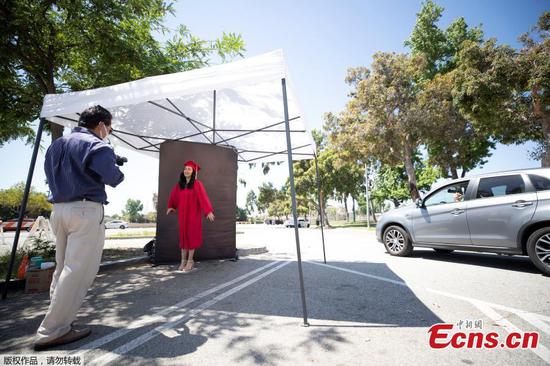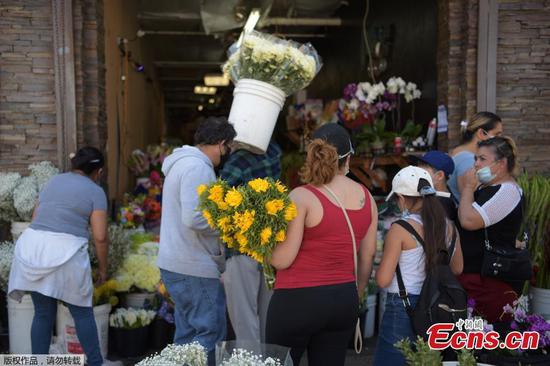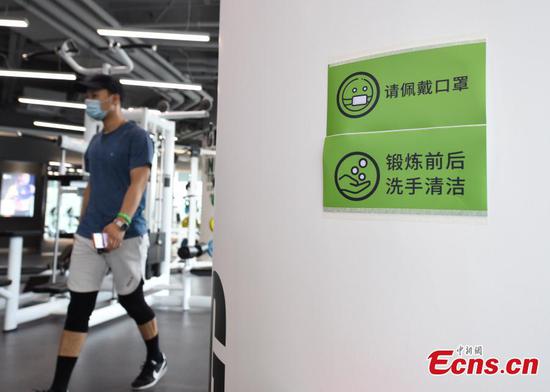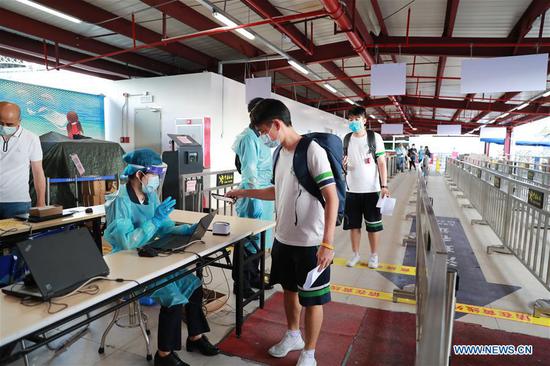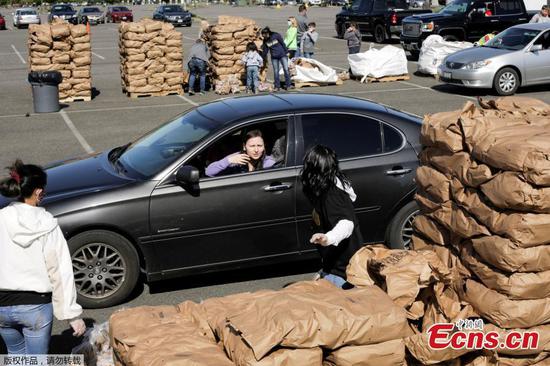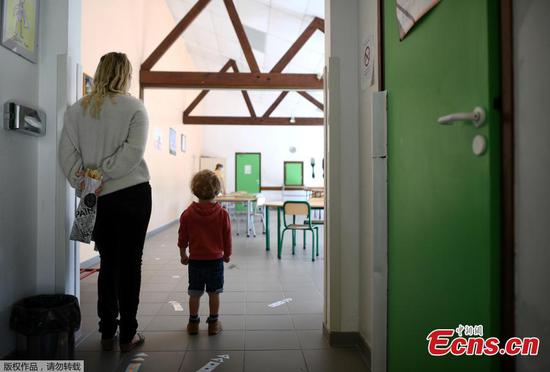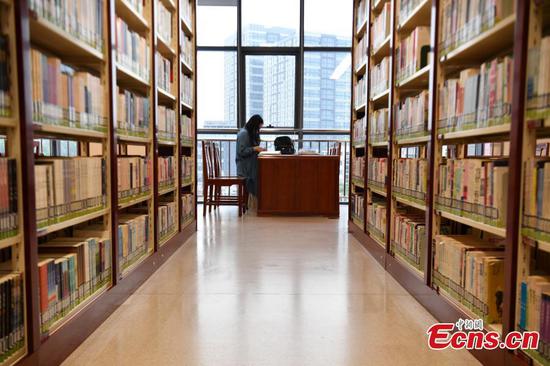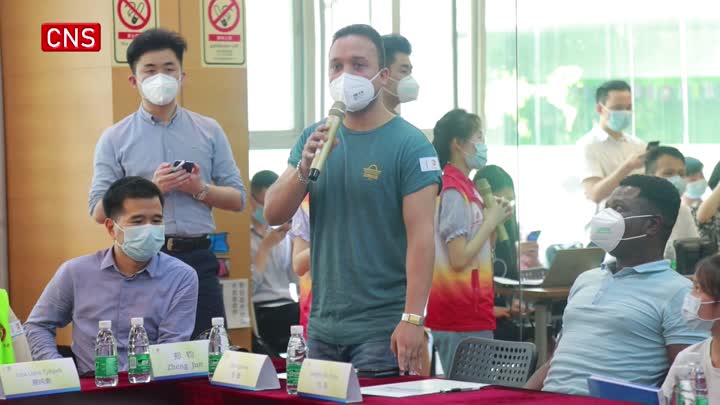
Wearing protective clothing, a man walks on the street to pick up medication at a drug store in New York's Chinatown. [Photo/China News Service]
Changing attitudes
Zhou Andi, who is studying for a Master of Business Administration in Bonn, Germany, has been paying attention to the pandemic in the country since early February, when several cases were confirmed in Munich.
About two weeks later, the 26-year-old bought 140 masks at a pharmacy and sent them to her father in China, who needed to return to work but could not find enough facial coverings.
In March, she saw a large group of people rush to the supermarket to buy as many items as possible, which caused shortages.
"I think people rushed to buy things out of an instinct to protect themselves, and items like toilet paper and flour can be stored for a long time," she said.
There were many jokes about panic-buying, and some bakeries even made cakes in the shape of toilet rolls as a satirical comment on the shortages.
"At the beginning, many people, including my (German) boyfriend, were indifferent to the virus because influenza kills more people every year in Germany than the total number of deaths (so far) caused by the virus. Also, most of the victims are quite elderly or people who are already ill," Zhou said.
However, she saw her boyfriend's attitude change in early April, when a friend of his mother became infected. The 50-year-old had difficulty breathing, but the hospital said she had mild symptoms so she was not admitted and just had to stay home and rest.
The woman was tearful every day, believing the hospital was ignoring her plight and that she would die.
As a result, Zhou's boyfriend and his parents began to worry about the virus and started wearing gloves and masks when they went out.
"I think people like my boyfriend's family don't feel fear until death strikes, and their minds can only be changed when a terrible case happens to someone close to them. Then, they start taking active protective measures," Zhou said.

Customers wear face masks as they shop at a Chinese supermarket in New York in April, 2020. [Photo/China News Service]
Impact on life and work
Lin, in Melbourne, hasn't been too badly affected by working from home, except that she cannot communicate with her colleagues promptly in person and is unsure of her role because she only joined the current work project recently.
"Friends in other consultancies are not as lucky as me. Their companies are planning to fire some employees, and many of my friends are only working four days a week with a reduced salary," she said.
She has seen many people lining up to collect unemployment benefit because the economy has been affected by the outbreak.
Although the pandemic has not affected Feng Tianji's work too much, the 26-year old lawyer in Sydney, Australia, has seen friends at other companies having their pay cut and being encouraged to take leave, unpaid or paid, because there is not enough work.
"The impact on each industry is different, and mine may not be representative. I do know that banking and property business volumes have fallen significantly," Feng said.
She noted that the pandemic has changed everyone's way of socializing, and said she has almost become accustomed to sharing her daily life with friends via video chats and social media.
Many of her friends and colleagues enjoy working from home. However, those with young children don't like it because they need to take care of the youngsters all day, which makes them tired and inefficient.
"I think the outbreak will raise awareness-the country may suffer a recession and people may lose their jobs, but people have families to support and bills to pay," Feng said.
The pandemic may also change some people's work plans, and even the direction of their lives.
Some of Feng's Chinese friends have yet to get their Australian "green card", or permanent resident's permit, so if they lost their job and could not quickly find a new one, they would have to abandon their plans and might even have to leave Australia.
"Some of them have spent years and millions of yuan in the country, with their future well-planned. If they lost their jobs, everything would have been in vain because it is so difficult to find a new one now," she said.
Feng and her friends have joined several WeChat groups, including those for sharing pandemic information and even food deliveries, which makes life more convenient.
Now, she is desperately hoping that the situation will return to normal as quickly as possible.










